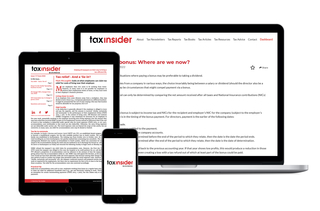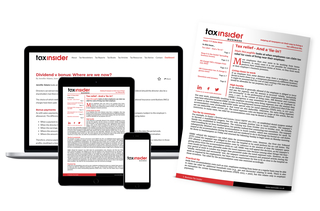New articles published
in March 2026
-
Family Companies: Tax Issues in Shareholding Structures
Companies are often set up in a hurry with no real thought being given to the commercial and tax efficiency of their shareholding structures.
For various personal reasons, some family company ‘owners’ prefer to hold all the shares. As far as they are concerned, this gives them ‘total control’. In practice, overall control can be enjoyed by holding at least 75% of the voting rights, since this would enable the ‘owner’ to pass special resolutions, vary its constitution and put it into liquidation. For effective day-to-day control, such as the appointment and removal of directors, determination of remuneration and dividend policy, it is only necessary to hold more than 50% of the shares.
Peter Rayney reviews the key tax issues that affect the structuring of shareholdings in a family company.
-
Gifts of Assets: Capital Gains Tax Pitfalls
Gifts of assets between individuals can result in a ‘dry’ tax charge; in other words, a capital gains tax (CGT) liability can arise even though no cash has changed hands between the parties. This is because a market value rule generally applies for CGT purposes on the gift of a capital asset.
Mark McLaughlin looks at an inheritance tax business property relief pitfall for company owners.
-
Company Liquidation: Tax Treatment of Capital Assets
As a company prepares to cease, its assets will usually be sold off before the company is liquidated and closed. The tax treatment of the disposal of capital assets is not a ‘one-size-fits-all’ approach.
Joe Brough outlines some issues to be aware of and tips for the efficient extraction of funds on winding up.
-
Autumn Budget 2025: Changes to Plant and Machinery Capital Allowances
Traders cannot deduct capital expenditure when calculating their taxable profit unless they use the cash basis and the expenditure is of a type for which a deduction is permitted under the cash basis capital expenditure rules. Instead, relief for qualifying expenditure is given through the capital allowances system. When it comes to expenditure on plant and machinery, there are a number of different routes by which relief can be secured.
At the time of the Autumn Budget in November 2025, the chancellor announced some changes to plant and machinery capital allowances, comprising a new 40% first-year allowance and a reduction in main rate writing down allowances.Sarah Bradford explains how the capital allowances changes announced in Autumn Budget 2025 will impact claims.
-
Q&As with Arthur Weller
Some of our most popular articles
-
Extracting profits from your personal or family company
A company is a separate legal entity, distinct from the shareholders that own it. Consequently, if the directors and shareholders want to use the profits made by the company for their personal use, they will need to extract those profits first. There are various ways in which this can be done; some are more tax-efficient than others.
Sarah Bradford considers options for extracting profits from a company in a tax-efficient manner in the 2024/25 tax year.
-
Is HMRC playing ‘dividend detective’?
HMRC recently undertook a ‘One to Many’ letter campaign, wherein HMRC’s skilled data analysts undertake to mine nuggets from a huge range of sources to test for omissions or errors in tax returns.
Lee Sharpe reports on HMRC getting all ‘Nancy Drew’ with its sleuthing over company reporting and shareholders’ dividend income returns.
-
A little known but generous CGT relief
Some company shareholders may either be unaware or have forgotten about a relatively unknown capital gains tax (CGT) relief that offers a reduced CGT rate of only 10% on qualifying gains of up to £10m during their lifetime, if certain conditions are satisfied.
Mark McLaughlin highlights a relatively unknown and infrequently used but generous capital gains tax relief.
-
Extraction point: Extracting profits on cessation
Owner-managers can spend a significant amount of time and energy building a successful and profitable trading company.
Joe Brough looks at tax issues for business taxpayers and their tax advisers when a company is coming to an end.
-
Q&As with Arthur Weller
Subscription Benefits
We asked our subscribers what they love about Business Tax Insider.
These are the top 7 reasons that they gave us:
Monthly Newsletter
Business Tax Insider…





